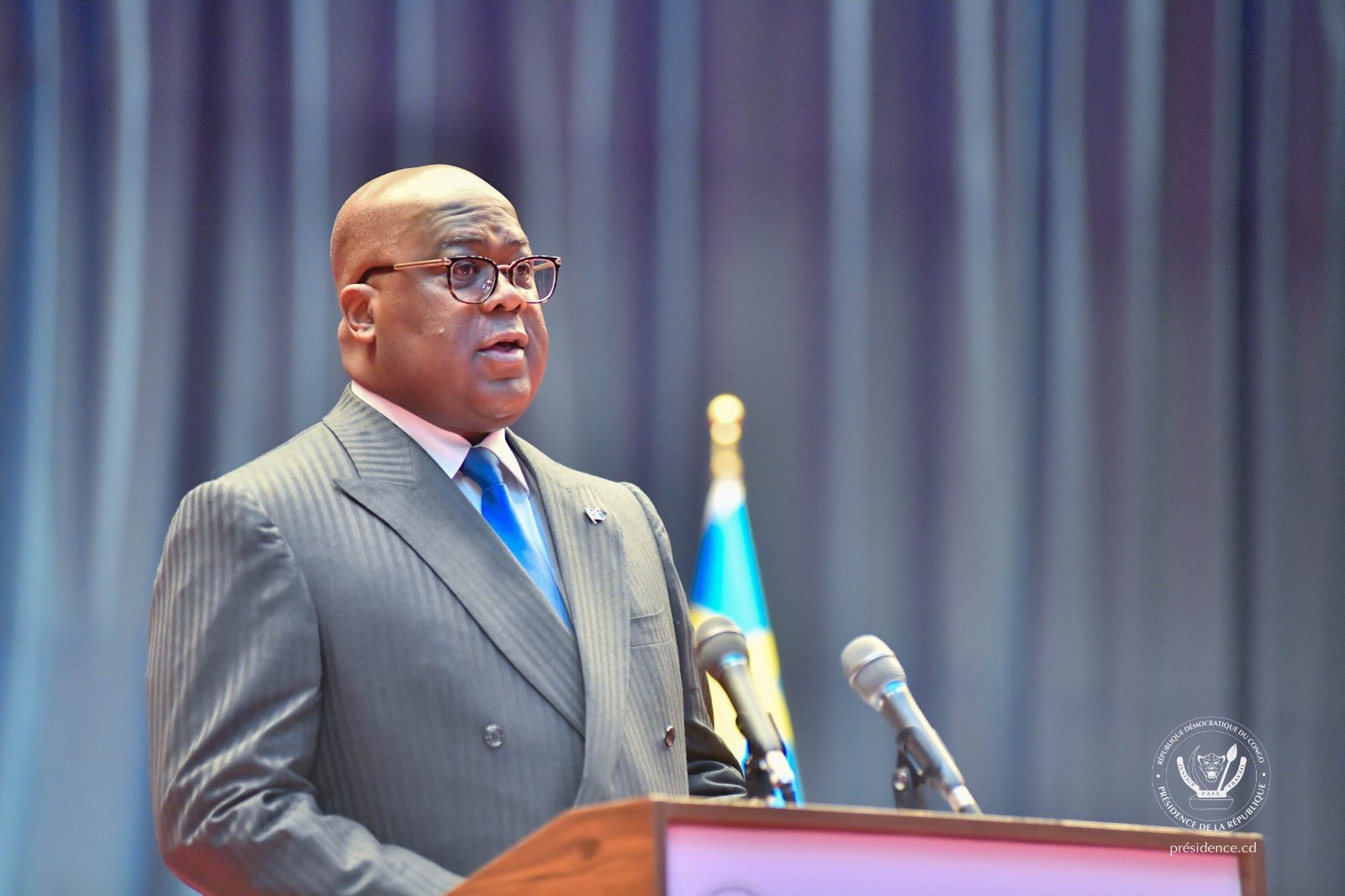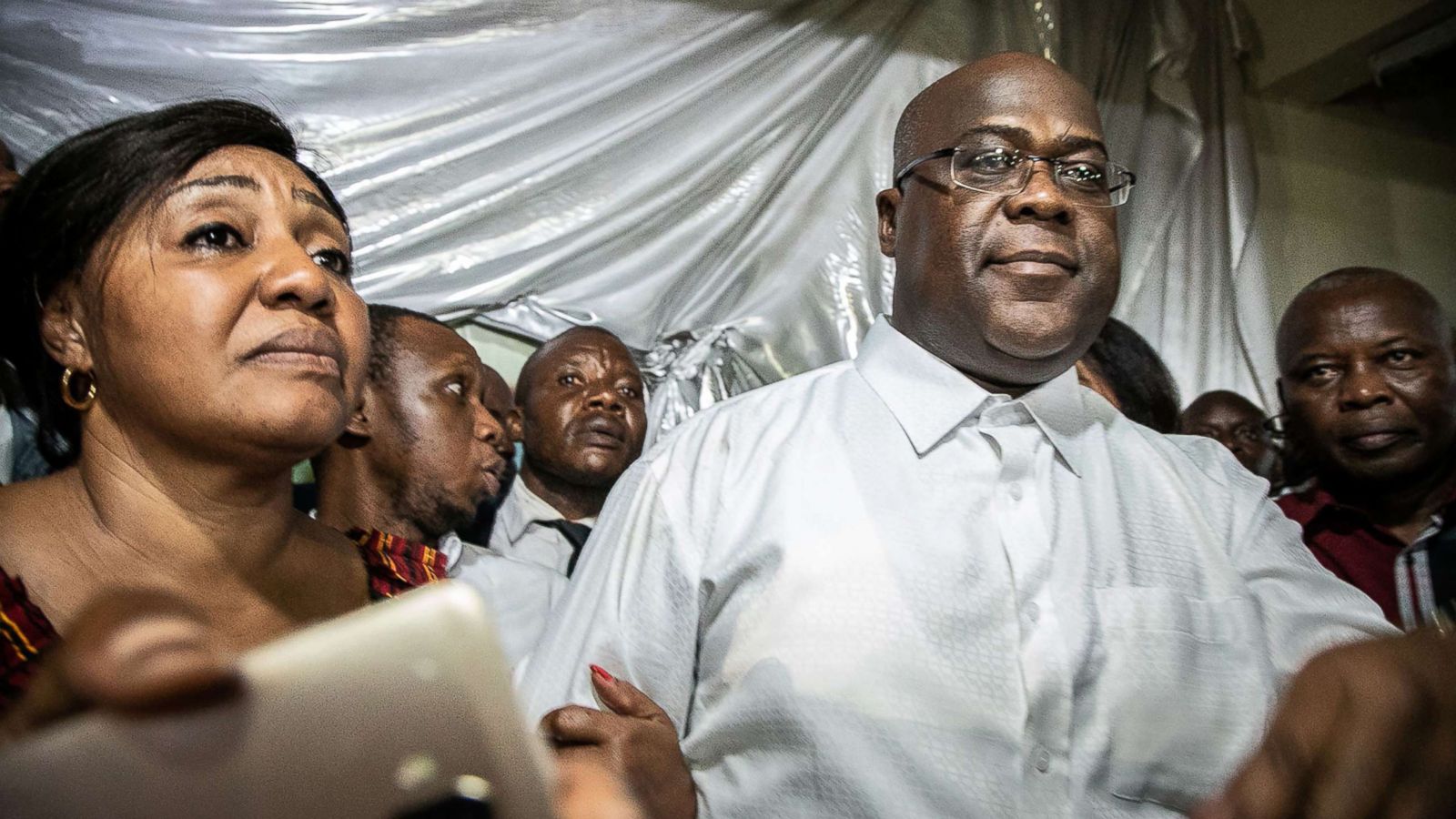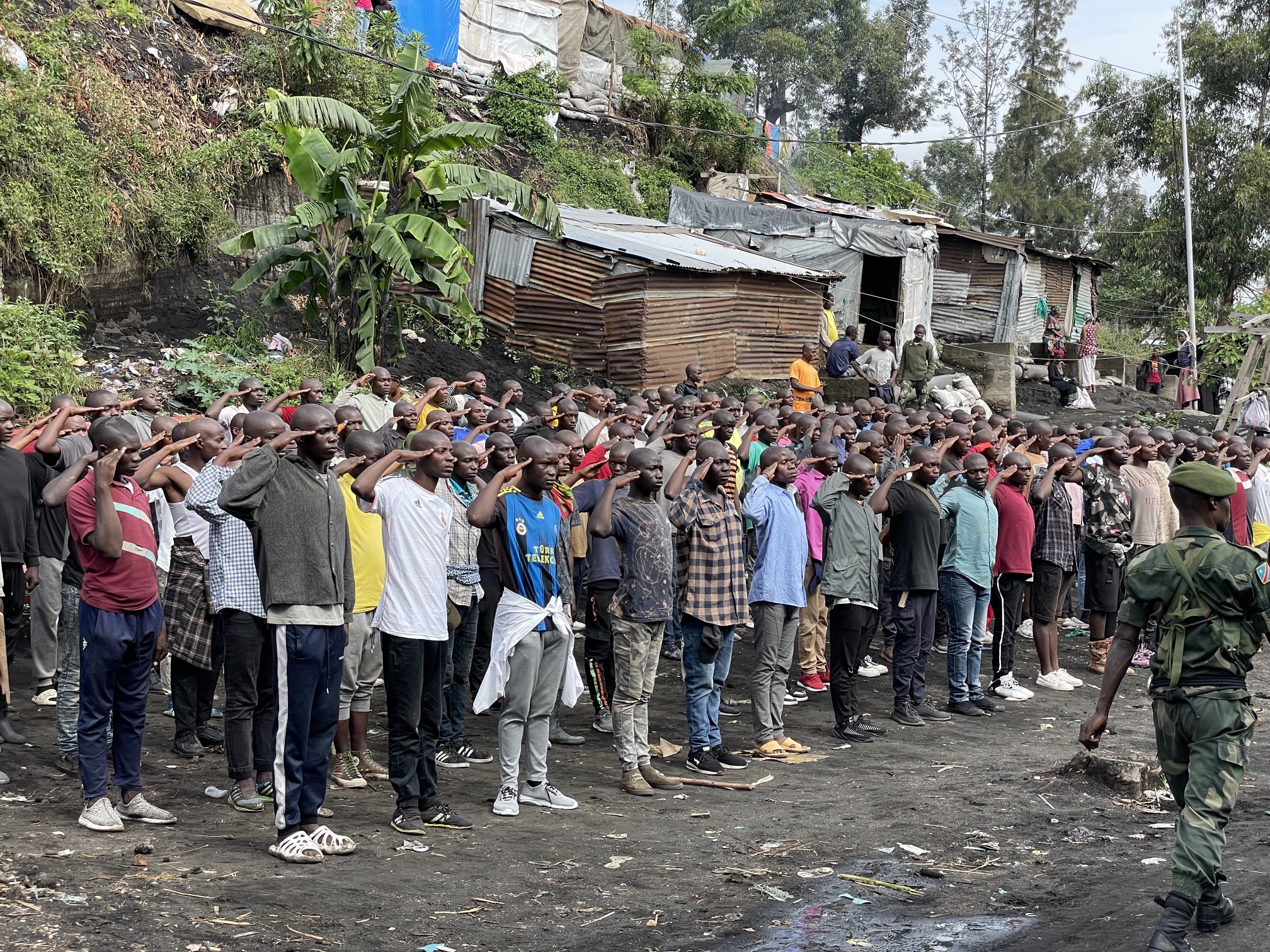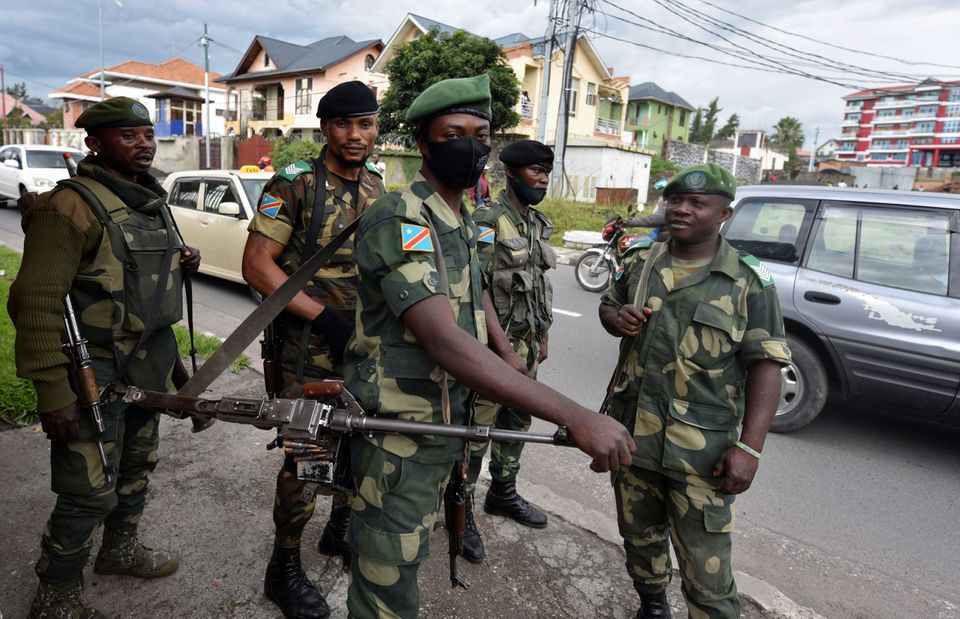Regional
Tshisekedi using state of siege to postpone presidential elections

Congolese President Felix Tshisekedi speaking at the opening of the round table discussions on the state of siege in the provinces of Ituri and North Kivu on August 14.
Congolese
President Félix Tshisekedi in mid-August extended the state of siege in Ituri
and North Kivu provinces until August 31 in an attempt, allegedly, to restore
order in the volatile eastern region of his country.
This
came after an August 14-16 meeting in Kinshasa where top Congolese politicians
considered three major things including maintaining the state of siege or
lifting it. According to reports, the participants who proposed lifting the
state of siege were sent out.
The
state of siege, where military authority replaced civil rule, was put in place
in May 2021 with an aim of fighting armed groups. Since then, the civilian
administration has been substituted by the military which now holds power in
both North Kivu and Ituri provinces.
In
June 2022, the Democratic Republic of Congo published a new law on the organization
of presidential elections with the aim of building a real electoral system
which is democratic, stable, and rule-based.
With
this law, Congolese people hoped to hold free and fair elections in December
2023, as they thought it responded to the concern on weaknesses of ballot
organization.
The
ambition of this law was more specifically to address practical issues found out
during the controversial 2018 elections from which Tshisekedi was declared
winner despite the fact that his opponent Martin Fayulu was the real president
elect.
The Congolese’s
hope is no more. Amending electoral law now looks like flogging a dead horse.
The
Congolese desire is to see a transparent and fair electoral system to avoid
recurrent political catastrophes. But this will not happen especially because Tshisekedi
is busy pulling all strings to stay in power.
The
Constitution of the DRC stipulates that a state of siege is characterized as an
extraordinary and short-term action which can be proclaimed for an initial
phase of 30 days; in case parliament validates an elongation, it has the
potential to be extended for a consecutive periods of 15 days.
Tshisekedi
contradicts the DRC’s constitution which he is supposed to secure.
Tshisekedi
justifies the state of siege as a way of establishing order within the two provinces.
However,
things deteriorated from the beginning. Armed groups are killing civilians and
collaborate with the Congolese army in looting.
The
Special Representative of the UN Secretary General in DRC, Bintou Keita, noted
that the period of the state of siege saw a 10 per cent increase in the number
of violations and abuses of human rights in the country.
No
matter what justifications, Tshisekedi’s aim is only to delay the presidential
elections, hence get a transitional term to plan enough for frauding the next
polls. How can civilians feel free to vote the president of their choice while
they are under military control?
Tshisekedi
is very sure that he cannot win votes from eastern DRC as he did nothing to
stop the violence there which led to thousands being killed and millions others
displaced.
By
extending the state of siege, Congolese
living in Ituri and North Kivu provinces are threatened and will not be able to
vote a president of their choice as provided by law. Tshisekedi is, in so doing,
using these eastern DRC provinces as a sacrificial lamb.
The
military authorities appointed by Tshisekedi have been utilizing their powers
during the state of siege to consistently restrict human rights through the
persecution and imprisonment of journalists and the targeting of human rights
defenders as well as political activists.







